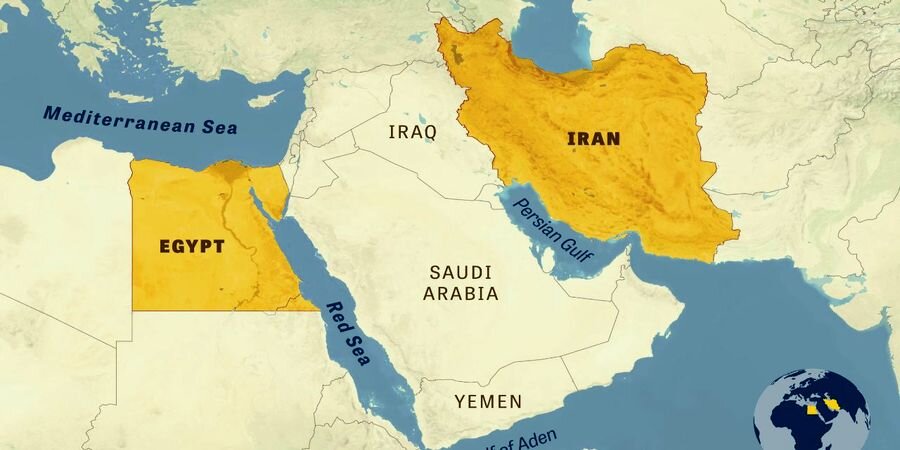Iran, Egypt agree to develop ties: report

TEHRAN – Iran and Egypt have held a high-level meeting in recent days and have agreed to boost their relations, according to a Qatari-owned newspaper.
Citing Egyptian diplomatic sources, Al Araby Al Jadeed said new developments have taken place in the relations between Tehran and Cairo ahead of a mid-July visit by U.S. President Joe Biden to the region. “A high-level meeting, which took place during the recent visit of Egyptian President Abdel Fattah Al-Sisi to the Sultanate of Oman early last week, brought together Egyptian and Iranian officials,” the sources told Al Araby Al Jadeed. They added that the meeting was attended by a high-ranking figure from the delegation accompanying the Egyptian president with Omani coordination.
The sources indicated that the meeting “was of a security nature in general, and touched upon the situation in the Gaza Strip and Syria,” adding that “there were many points of agreement between the two parties, and that the coming period may witness direct coordination between Cairo and Tehran on issues and matters related to the Strip.”
According to the sources, “during the meeting, an agreement was reached on joint coordination in international forums, as long as that was possible, in light of the desire of Cairo and Tehran to reach a good level of relations, provided that they would gradually improve, according to the developments of events in the region.”
In his visit to Oman, the Egyptian president was accompanied by Foreign Minister Sameh Shoukry, Chief of General Intelligence Abbas Kamel, Minister of Planning Hala Saeed, and a number of other officials.
Iranian Foreign Minister Hossein Amir Abdollahian had denied the holding of direct meetings with the Egyptian government, although he expressed hope for developing relations between the two countries. Amir Abdollahian said in remarks to state TV earlier this week, “We have not yet had direct negotiations with the Egyptian side. Egypt is an important country in the Islamic world and the world, and we believe that expanding relations between Tehran and Cairo is in the interest of the two peoples.”
He also said in separate remarks that there are “ongoing efforts to restore relations between Tehran and Cairo within the framework of cooperation between two Islamic countries.”
He added that “there is an office for representing interests in each of the two countries, which shows the fact that Egypt is an important country in the Islamic world, and we consider developing relations with it to serve the interests of the peoples of the two countries, the Islamic world and the countries of the region.”
The Egyptian sources said that Egypt is “always keen not to enter into hostile relations with any regional and international party, as long as there is no need for that, and that this principle is the main motive for not entering into regional alliances.”
They pointed out that the meeting “included an Egyptian clarification regarding the Negev guidance document that was recently signed in Manama, during which the United States, Israel and four Arab countries agreed to enhance cooperation and hold annual meetings of foreign ministers, two weeks before U.S. President Joe Biden's visit to the Middle East [West Asia].”
The sources said that “the Egyptian clarifications included an explanation of the nature of the gathering, and that it is a consultative framework, during which Cairo confirmed that it refuses to join any military alliances.” They noted that the matter "is nothing more than an informational and guiding coordination.”
The Egyptian sources said that “the Egyptian orientation comes to block any attempts that would put Cairo and Tehran in a position opposite to each other, by international and [Persian] Gulf parties.”
The sources revealed that there is “a great role played by the Sultanate of Oman in improving Iranian-Arab and [Persian] Gulf relations during the current period.”
They revealed that “an Omani-Iranian-Saudi communication channel that was agreed upon between the three countries, which discussed files that were a breakthrough in the tense relationship between Riyadh and Tehran.”
The sources explained that “among the files in which understandings were reached between the two parties: the situation in Yemen, and matters related to the security situation in the region, in addition to the attacks that the Kingdom was being subjected to by the Houthis.”
